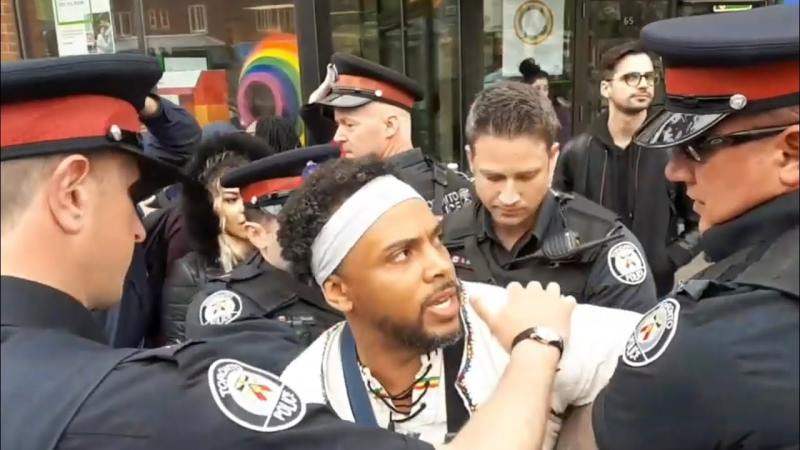
The emergence of the COVID-19 pandemic has completely changed the world. Millions of lives have been lost during this outbreak and the economy has shut down for months in most states, causing many to lose sources of their incomes. Primarily, freedom has been restricted by this pandemic with "stay home" orders that prohibited non-essential business operations.
COVID-19 has also impacted the circumstances of people of faith. Many cases arose during the pandemic in which freedom was taken away by the government. This includes when the North Carolina pro-life leader David Benham, who was providing free resources to help abortion-minded women on a public sidewalk outside an abortion facility was arrested by police. He "carefully followed every social distancing requirement, but the authorities don't care. Handcuffed," he "slowly walk to the cop car with tears in his eyes being taken to jail." Even though David "didn't break any law."
Alliance Defending Freedom (ADF) has successfully defended the freedom of Christians. Here are five victories that have been published by ADF
1. Churches in Washington State
The governor of Washington's stay-at-home order was so vague and ambiguous that it could have been read to prevent just a handful of church staff members from gathering to record and stream online services during the pandemic. We sent a letter to the governor, and the state later issued guidance clarifying that online services were allowed.
2. Kansas: First Baptist Church and Calvary Baptist Church
Governor Laura Kelly issued an executive order during Holy Week prohibiting "mass gatherings" of more than ten people. The order had over two dozen exceptions, including retail establishments, offices, and bars . . . but not churches. In fact, the order explicitly prohibited "churches and other religious services or activities" from having the same freedom as bars and other secular establishments.
First Baptist Church and Calvary Baptist Church are small churches located in rural areas where they were unable to rely on livestream services and where there were hardly any COVID-19 cases. These churches had been gathering in small groups while observing strict social distancing and health protocols. But the governor's order shut the door on that-right before Easter!
Fortunately, ADF stepped in to represent the churches, allowing them to gather for worship, and securing their right to be treated no worse than secular establishments.
3. Chattanooga, Tennessee: Metro Tabernacle Church
After holding livestream services for several weeks, Metro Tabernacle Church began planning an Easter Sunday drive-in church service to bring their community together while still following social distancing guidelines. But just days before Easter, the mayor abruptly changed his "stay-at home" order, specifically banning drive-in church services. People could sit in their cars at the Sonic Drive-In down the street to enjoy soda and cheeseburgers . . . yet the same number of cars could not gather in a church parking lot to celebrate what many Christians consider the most holy day of the year.
ADF filed a lawsuit on behalf of Metro Tabernacle Church. And while the mayor's actions sadly prevented the church from gathering on Easter Sunday, the mayor revised his policy to allow drive-in services the next week.
4. Greenville, Mississippi: Temple Baptist Church
During Holy Week, police cars entered the parking lot of Temple Baptist Church in the middle of a Wednesday night drive-in service. The officers then began to issue $500 fines to churchgoers sitting in their cars while listening to Pastor Arthur Scott, who was preaching inside, over the radio.
After ADF got involved, the city canceled these fines but refused to revise its unconstitutional policy banning drive-in services-a policy that directly contradicted the Alabama governor's executive order. After ADF filed a lawsuit, U.S. Attorney General William Barr and the Department of Justice filed a statement of interest in the case supporting Temple Baptist Church.
Realizing that it would not win this lawsuit, the city of Greenville revised its order on April 21 to allow drive-in church services-another great victory for churches and for the Constitution!
5. Wake County, North Carolina: Churches banned from communion and tithing
In Wake County, like most of the country, restaurants can sell food while adhering to certain social distancing regulations. But churches were explicitly banned from the nearly identical actions of receiving in-person tithes and distributing communion.
After several churches in the area contacted ADF, our attorneys sent the county a demand letter explaining how its policy was unconstitutional. Thankfully, the county responded by revising its policies. The new policies treat churches fairly by allowing them to accept tithes and distribute prepacked communion while adhering to the other social distancing requirements.


















